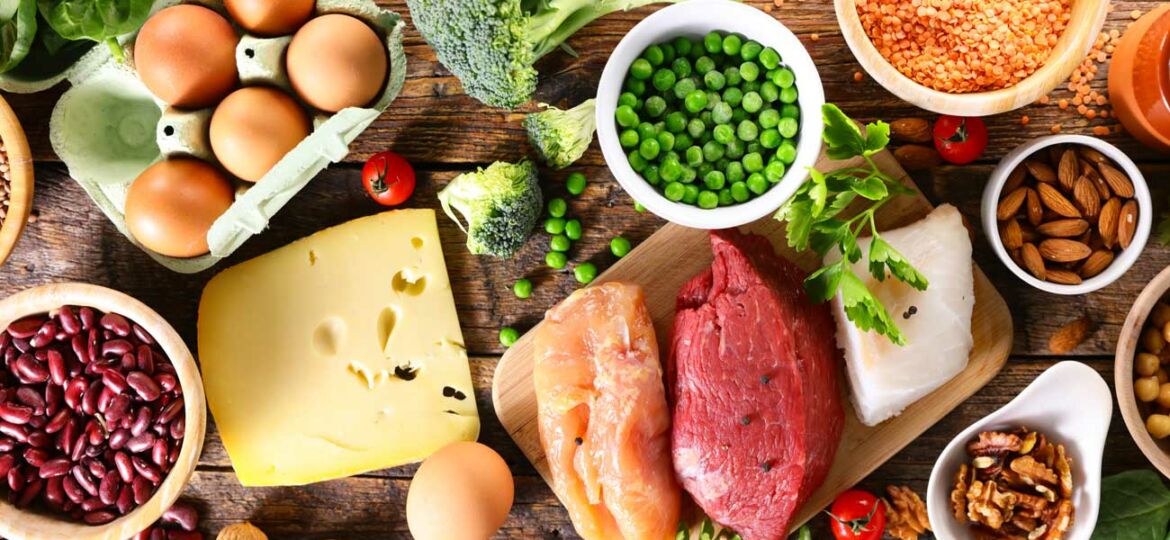
Protein: How Much is Too Much?
Anyone who’s into healthy eating and fitness has heard about the importance of having a protein-focused diet. From Keto fans wishing to shed weight to vegans wishing to retain a healthy balance in their body and mind and athletes determined to build muscle (link to muscle mass blog post), protein is considered a key component for helping us achieve all kinds of positive results.
Why is protein so popular?
Indeed, a significant volume of research indicates that a high-protein diet can contribute to a healthier nervous system, reduced blood sugar levels, faster recovery (tissue repair) after injuries, better preservation of muscle mass, a quicker metabolism and better cell growth. Eating protein also boosts the feeling of satiety after eating, which means eating less and losing more weight.
How much protein do you need every day?
The Recommended Daily Allowance for Protein is actually a lot lower than many people are led to believe today. On average, you should consume between 10 – 35% of your calories from protein. Another way to estimate it is to count an intake of 0.36g of protein per pound of body weight. General recommendations average at around 46g per day for women and 56g per day for men, but this depends on many factors such as an individual’s weight, age, activity & fitness levels and general health status.
As a result of protein becoming such a great trend in the diet and fitness realm, doctors are now warning that too much protein can actually pose a serious risk on the body and mind, as several studies have been revealing. More specifically, consuming too much protein has been linked with the following unpleasant effects:
- People following high-protein eating regimes like Keto or Atkins often end up eating less fibre-rich foods like legumes, whole grains and fruit, which leads to constipation.
- Smelly Breath. Eating mostly protein brings the body into a state of ketosis, which means your body burns fat for its fuel instead of sugar from carbohydrates. In the state of ketosis the body can produce acetone, the unpleasant odour of which wafts out of the mouth.
- Headaches and tiredness are another result of ketosis, because there’s very little sugar in the body.
- One of the key components in protein is nitrogen, which the body tries to flush out if it receives it in high doses, thus leading to frequent urination and dehydration. Drinking plenty of water regularly throughout the day can help counter this.
- Kidney Stones. Eating large amounts of animal protein (such as eggs, meat and seafood) has been shown to cause kidney damage because these foods cause the production of uric acid to shoot up, while urinary citrate, which prevents kidney stones from forming, decreases.
So unless you’re training for a bodybuilding competition or fully set on sticking to your keto diet, how can you regulate the amount of protein you eat so that it doesn’t adversely affect you? A good way to start is to consider what you eat in an average week and research the amount of protein found in your preferred foods so that you can be sure you’re not overdoing it. It can be surprising to discover that, for example, a handful of nuts has 4-6g of protein, which is as much as one 5oz yoghurt, or that ½ cup of edamame has more protein (8g) than 1oz of beef, chicken, pork, tuna, or lamb (7g) or an egg (6g).
Would you like to discover exactly how much protein there is in your blood? By taking a blood test and sending it to our lab, you will receive a sophisticated reading of all your biomarkers. You’ll gain an easy, fast and thorough understanding of your protein levels. Additionally, our experts will supply you with a full list of 100% customised advice on how you can attain the ideal balance for you by choosing the right diet. Order your test kit now!


